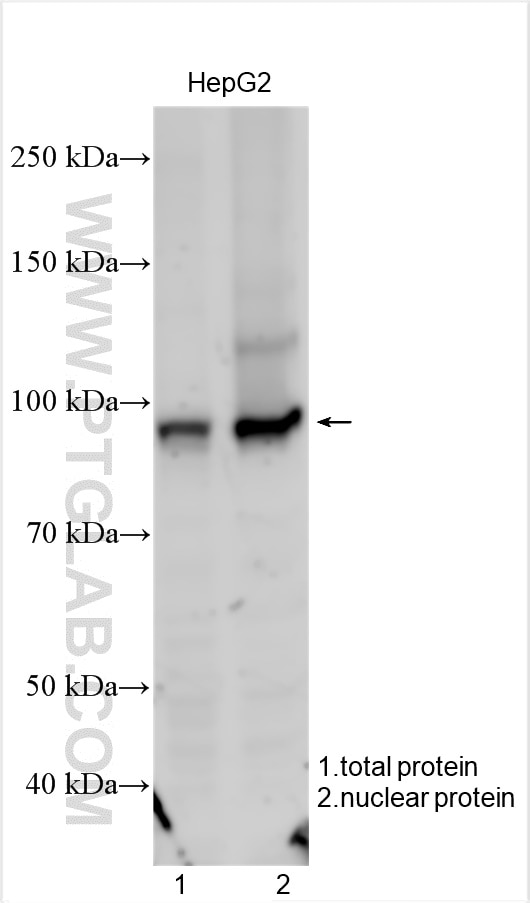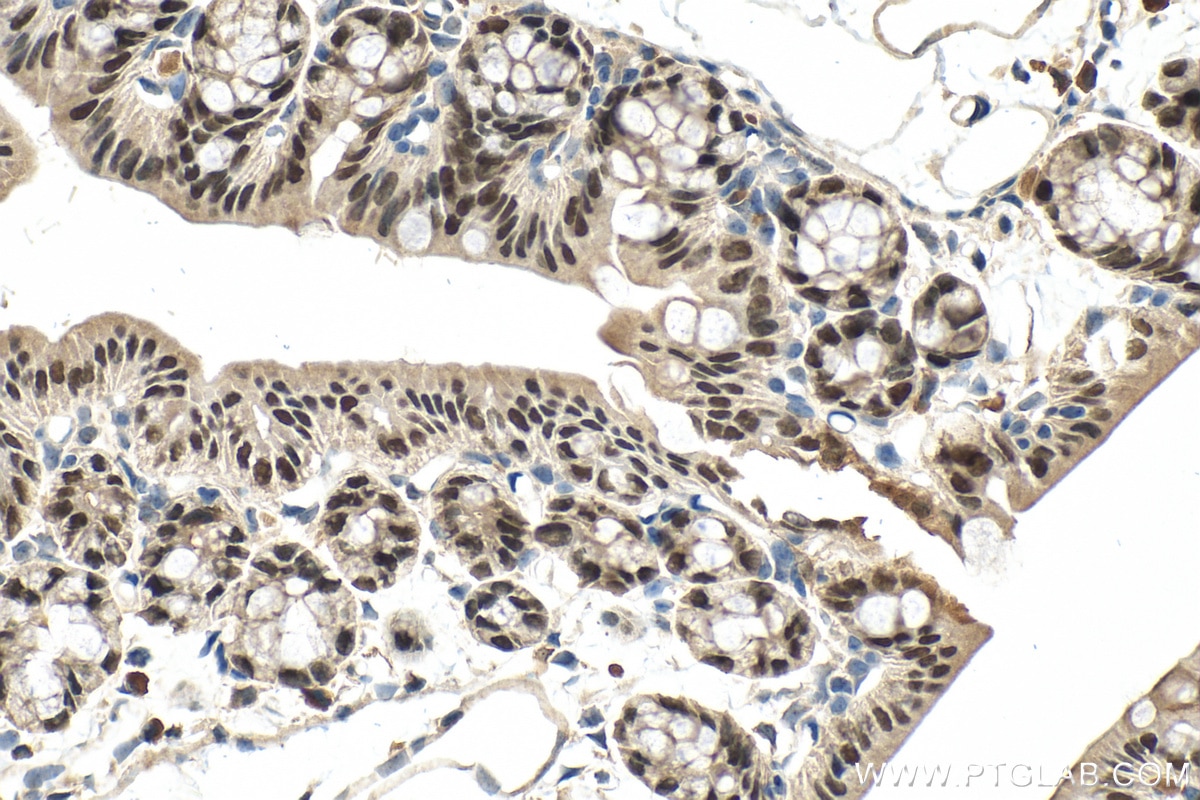SATB2 Polyclonal antibody
SATB2 Polyclonal Antibody for WB, IHC, ELISA
Host / Isotype
Rabbit / IgG
Reactivity
human, mouse
Applications
WB, IHC, ELISA
Conjugate
Unconjugated
Cat no : 19557-1-AP
Synonyms
Validation Data Gallery
Tested Applications
| Positive WB detected in | HepG2 cells |
| Positive IHC detected in | mouse colon tissue Note: suggested antigen retrieval with TE buffer pH 9.0; (*) Alternatively, antigen retrieval may be performed with citrate buffer pH 6.0 |
Recommended dilution
| Application | Dilution |
|---|---|
| Western Blot (WB) | WB : 1:500-1:2000 |
| Immunohistochemistry (IHC) | IHC : 1:250-1:1000 |
| It is recommended that this reagent should be titrated in each testing system to obtain optimal results. | |
| Sample-dependent, Check data in validation data gallery. | |
Product Information
19557-1-AP targets SATB2 in WB, IHC, ELISA applications and shows reactivity with human, mouse samples.
| Tested Reactivity | human, mouse |
| Host / Isotype | Rabbit / IgG |
| Class | Polyclonal |
| Type | Antibody |
| Immunogen | Peptide |
| Full Name | SATB homeobox 2 |
| Calculated Molecular Weight | 83 kDa |
| Observed Molecular Weight | ~100 kDa |
| GenBank Accession Number | NM_015265 |
| Gene Symbol | SATB2 |
| Gene ID (NCBI) | 23314 |
| Conjugate | Unconjugated |
| Form | Liquid |
| Purification Method | Antigen affinity purification |
| Storage Buffer | PBS with 0.02% sodium azide and 50% glycerol pH 7.3. |
| Storage Conditions | Store at -20°C. Stable for one year after shipment. Aliquoting is unnecessary for -20oC storage. 20ul sizes contain 0.1% BSA. |
Background Information
SATB2, also named as KIAA1034, belongs to the CUT homeobox family. SATB2 binds to DNA at nuclear matrix- or scaffold-associated regions. STAB2 recognizes the sugar-phosphate structure of double-stranded DNA. SATB2 is a transcription factor controlling nuclear gene expression, by binding to matrix attachment regions (MARs) of DNA and inducing a local chromatin-loop remodeling. SATB2 acts as a docking site for several chromatin remodeling enzymes and also by recruiting corepressors (HDACs) or coactivators (HATs) directly to promoters and enhancers. It is required for the initiation of the upper-layer neurons (UL1) specific genetic program and for the inactivation of deep-layer neurons (DL) and UL2 specific genes, probably by modulating BCL11B expression. It is a repressor of Ctip2 and regulatory determinant of corticocortical connections in the developing cerebral cortex. SATB2 may play an important role in palate formation. SATB2 acts as a molecular node in a transcriptional network regulating skeletal development and osteoblast differentiation.
Protocols
| Product Specific Protocols | |
|---|---|
| WB protocol for SATB2 antibody 19557-1-AP | Download protocol |
| IHC protocol for SATB2 antibody 19557-1-AP | Download protocol |
| Standard Protocols | |
|---|---|
| Click here to view our Standard Protocols |



